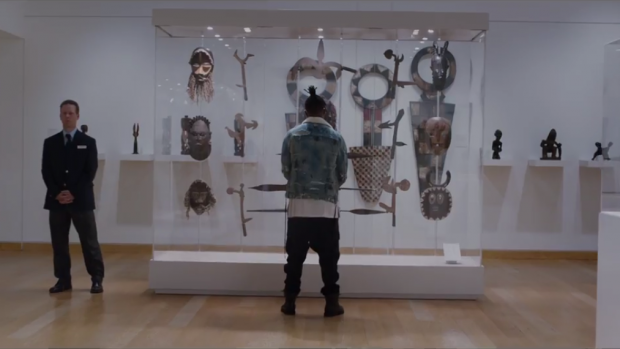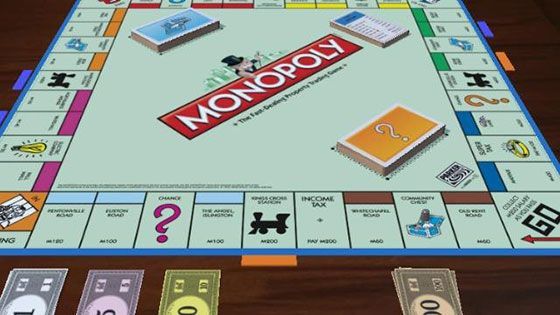How a Banned Book Changed My Life
Black authors have something to teach us.

Ever had hard conversations about books or... anything?
Click here to get tips on how to manage difficult conflicts and communication.
Disproportionately, the bans target books that center non-white and gender non-binary characters - characters that many diverse students can relate to. So, what might be the impact on students who can’t see themselves in their curriculum?
I believe in the power of stories. Not just the stories we read, but also the stories we tell ourselves. These stories explain who we are, who we are to others, how people are different from us and justify how we respond to them. These stories shape every choice we make in our lives. We likely believed in a story that helped us choose the type of neighborhood we live in — whether that story is accurate or not. We believed in a story that helped determine if we hire or promote that person or not. Stories also shape what we think about our schools, the students in them, the parents that care for them, and the communities they live in. Those stories shape if we, as educators, will invest in certain students over others or work to make a change from our spheres of influence.
I love to read. I’ve always loved to read. Matter of fact, in elementary school, the day I looked forward to every year was the book fair. I would receive a newspaper-thin catalog of all the books available before they arrived. I eagerly circled all the books I wanted, added up the cost, and made my monetary request to my mother. She always gave in. I never got name-brand clothes, and all my shoes came from Payless, but she would always spend money on books.
One way I chose the kinds of books I wanted was if it was a Newberry Medal Award winner. These books had a shiny gold seal on the bottom right side of the cover. In second grade, I was in love with Beverly Cleary’s books. She was a woman who wrote about Ramona Quimby — a nine-year-old rambunctious and creative troublemaker who lives with her middle-class white family in Oregon. Her full-time job is to drive her big sister Beezus and all the adults out of their minds. I felt aligned with Ramona so much. I was mischievous, loud, questioned authority, and highlighted inconsistencies in adult actions just like Ramona did. My goal was to read every book in the 11-part series.

The day came, and finally, it was the book fair. I excitedly walked with my class to the library, covered with rows of new books. I had my crumpled heavily-circled catalog in hand, ready to find my pre-determined selections. My second-grade teacher, Miss Whitehurst, found me in one of the distant aisles. She was my first African-American teacher — a small older brown-skinned woman who often wore her hair like Coretta Scott King. I also gave her a lot of grief. She said Beverly Cleary writes some entertaining books, but have I seen this one? She hands me a paperback novel with a young black girl on the front. The title was “Roll of Thunder, Hear My Cry” by Mildred Taylor. I had not heard of this book, but I noticed it had one of those fancy gold seals on the front, so I decided to forgo one of my selections for this one.
“Roll of Thunder, Hear My Cry” is one part of a series of stories that center the Logans - a tight-knit multi-generational African American family. The story is told from the perspective of Cassie Logan — a nine-year-old girl who lives with her family on a Mississippi farm in the middle of Depression-era Jim Crow. She constantly tries to make sense of the interpersonal and systemic racism her family continues to encounter as they try to save their farmland and stay safe from white vigilante violence.
Cassie has a temper, speaks her mind even if she knows it’ll get her in trouble. She notifies people of inappropriate racial slurs in her textbook. She notices injustices, which sometimes leads her to want to fight boys. A memorable moment in the book was when Cassie was forced to apologize to Lillian Jean Sims, a white girl, because Lillian bumped into her. Cassie’s parents attempt to explain to her the dangers of the “night men” who can harm them. They said this while simultaneously ensuring Cassie has a sense of self-respect. Cassie learns that the whites in her town don’t judge Black people based on character or behavior. Instead, everything is based on a manufactured story of white superiority that Lillian and others have chosen to believe. To which Cassie responds, “Well, they ain’t!”
None of this seems logical to Cassie. Ultimately, Cassie gets into a brutal fight with Lillian pulling her long, blond hair. In the end, Cassie makes Lillian apologize to her. Although this was a story of nine-year-old girls being children, they were trying to navigate a complex society, and I understood that. My teacher in my small Southern town knew I could benefit from a different story.
Ramona’s home in Oregon felt like some distant land, but Mississippi felt really close. Probably too close. As a girl who grew up in small-town Florida, I saw much of what Cassie had seen. If Cleary helped me think through what it means to push boundaries through Ramona, then Taylor directed me to see what boundaries needed to be pushed through Cassie. Although I was only in the second grade, there was a maturity shift. I never got to read all 11 of those adventures of Ramona. But I found myself diving headfirst into any book I could find that told me the story of people who look like me. As a result, I won an award for checking out the most books in the library at my school. But I don’t recall anybody asking me what I was reading or why.
Today I still love to read. However, I use the information I gather to support educators in strengthening their relationships with their students by helping them find curriculum and stories that encourage learning and curiosity. Educators can find out what their students are interested in and discover alongside them, or even learn from their students. But I also help educators recognize that the stories they have for their students and the communities their students come from impact their choices in the classroom. Such as if that student is having a bad day, do you offer them support or not? Who gets disciplined or removed from the classroom, and who gets a conversation for understanding? Who gets the benefit of the doubt, and who does not? Who gets detailed feedback, and who gets an unexplained grade? What does it mean to recognize the Ramonas and Cassies — or the Melissa’s — in your classroom and see their personality as an asset not a liability?
What does it mean to support students like Jack Petocz, a high schooler at Flagler Palm Coast High School, who organized the protest against a book ban in his district? His protest began after a school board member in Flagler County, Florida, filed a complaint with the sheriff’s department against George M. Johnson’s book, “All Boys Aren’t Blue,” a memoir about growing up Black and queer.

The growing demand to censor literature relating to race and LGBTQ identity is how states and school districts legalize the erasure of works from Black creatives and intellectuals, such as Martin Luther King’s “Letter from Birmingham Jail”, James Baldwin’s “Go Tell it On the Mountain”, Maya Angelou’s “Know Why the Caged Bird Sings”, Toni Morrison’s “The Bluest Eye” to name a few.
My hope is that concerned conservative parents consider if their anger is actually the result of their discomfort around difficult conversations. Just because you are uncomfortable doesn’t mean you or your children are unsafe. And just because you want the freedom to say and feel what you want doesn’t mean you have the freedom to erase the contributions of writers who highlight the experiences of people who aren’t you.
Get practical info straight to your inbox. Click here to get tips on how to manage difficult conflicts and communication.










